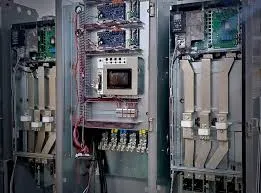The Importance of High Voltage Busbar Insulation Tape
High voltage systems play a critical role in the transmission and distribution of electrical energy. One of the essential components within these systems is the busbar, which acts as a conductor that collects and distributes electrical power to various circuits. However, to ensure the safe and efficient operation of such high voltage apparatus, proper insulation is paramount. This is where high voltage busbar insulation tape comes into play.
High voltage busbar insulation tape is specifically designed to insulate electric conductors and prevent electrical faults such as short circuits and electrical arcing. It is typically made from materials that exhibit excellent dielectric properties, allowing it to withstand high voltages while providing reliable performance over time. This specialized tape is essential for ensuring the safety and longevity of electrical systems.
One of the primary characteristics of high voltage insulation tape is its ability to resist high temperatures. In environments where heat can rapidly accumulate, such as substations or industrial settings, using insulation tape that can tolerate extreme temperatures and maintain its insulating properties is crucial. This characteristic not only prevents breakdown but also ensures that the insulation remains effective under stress, thereby enhancing the safety of the entire electrical system.
high voltage busbar insulation tape

Moreover, high voltage busbar insulation tape is designed to provide mechanical protection along with electrical insulation. The chemical and physical robustness of the tape protects the busbars from environmental factors such as moisture, dust, and corrosive substances. This additional layer of protection helps maintain the integrity of the electrical connections and prevents potential failures caused by external elements.
Ease of application is another advantage of high voltage insulation tape. Most of these tapes come with pressure-sensitive adhesives that adhere firmly to the busbar surface, ensuring a secure fit. This feature allows personnel to wrap the tape efficiently around the busbars, minimizing installation time while maximizing performance. Some manufacturers offer tapes that even come in various thicknesses and widths to cater to different operational requirements.
In terms of compliance, many high voltage busbar insulation tapes meet national and international standards, such as UL or IEC certifications. These certifications guarantee that the insulation tape has undergone rigorous testing for safety and performance, providing assurance to engineers and operators relying on these products in critical applications.
In conclusion, high voltage busbar insulation tape is an indispensable component in the maintenance and operation of high voltage electrical systems. Its high dielectric strength, thermal resistance, and mechanical protection make it a reliable choice for ensuring safety and durability. By investing in quality insulation tape, users can significantly enhance the performance and longevity of their high voltage systems, ultimately contributing to the efficiency and reliability of electrical power distribution.
-
XIANGFAN Rubber Tape-Ultimate Solutions for All Your Insulation NeedsNewsJun.24,2025
-
XIANGFAN Rubber Tape-Protection for Industrial and Residential ApplicationsNewsJun.24,2025
-
XIANGFAN Rubber Tape: Superior Safety and Sealing for Demanding EnvironmentsNewsJun.24,2025
-
XIANGFAN Rubber Tape: Reliable Solutions for Every Electrical ChallengeNewsJun.24,2025
-
XIANGFAN Electrical & Industrial Tape: Powering Reliability Across IndustriesNewsJun.24,2025
-
XIANGFAN Electrical & Industrial Tape: Excellence in Every ApplicationNewsJun.24,2025
